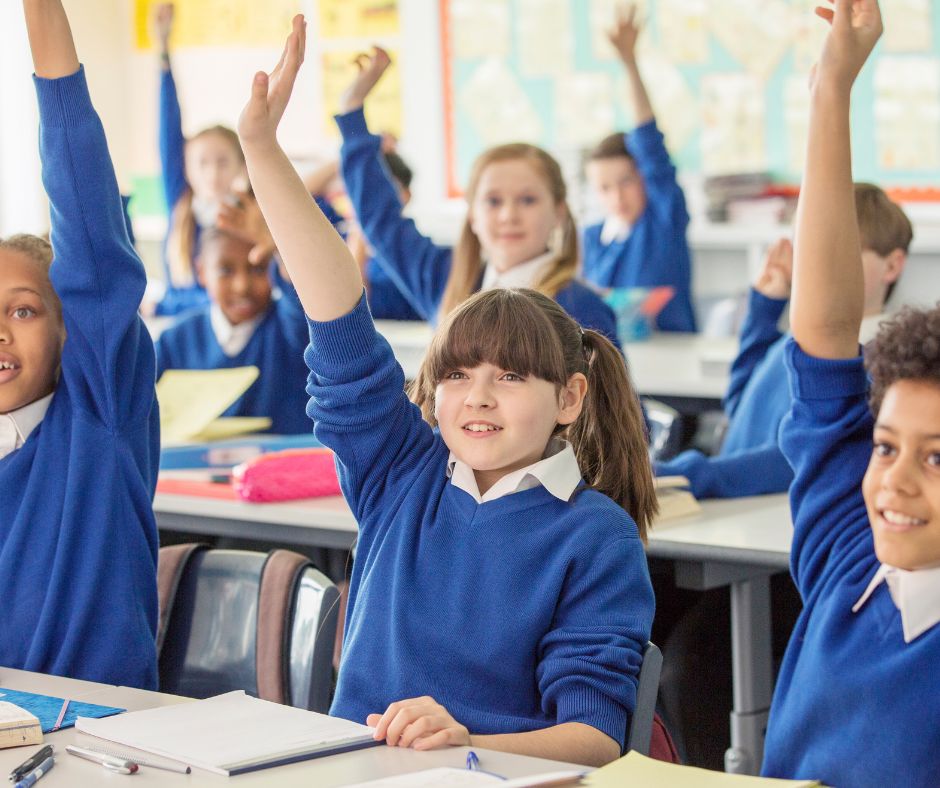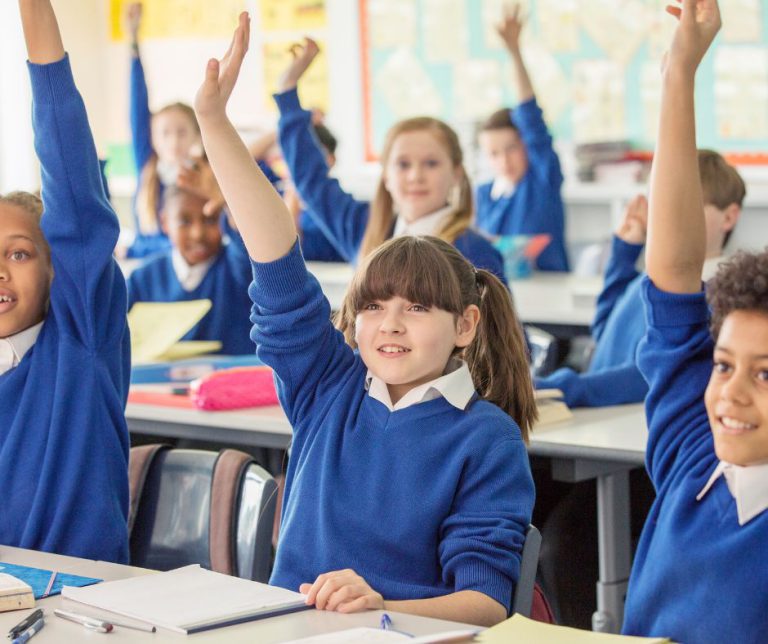Maximize Your Child’s Academic Success by Focusing on Vision Health
As the new school year approaches, parents experience a whirlwind of emotions—excitement for fresh starts, anxiety regarding upcoming challenges, and aspirations for their children’s achievements. Amidst the joy of purchasing new school supplies, one crucial aspect often gets overlooked: vision health. It is vital to understand that ensuring your child has optimal vision is not just a health concern; it is a key pillar of their academic readiness and overall learning journey. Making regular eye examinations a priority should be at the forefront of parental responsibilities, as these assessments can reveal hidden vision issues that may impede academic performance. By addressing these concerns early, parents empower their children to tackle academic challenges confidently and seize every opportunity that education presents.

Exploring the Emotional Landscape of Parental Aspirations for Academic Achievement
The journey through a child’s education is often marked by a unique emotional landscape for parents, shaped by personal experiences and hopes for the future. Our aspirations for our children often intertwine with various challenges, fears, and desires, creating a complex emotional tapestry that profoundly influences how we support their learning. While every parent dreams of their child attaining academic success, these dreams frequently coexist with concerns about social interactions and long-term educational prospects. Striking a balance between these emotions can be challenging, yet it remains essential for providing the necessary support that fosters our children’s growth and development.
To effectively navigate this educational journey, it is crucial for parents to acknowledge the emotional factors involved. Their desires extend beyond mere academic achievements; they envision their children becoming confident, resilient learners who can thrive in diverse environments. Parents often dream of a future where their children receive personalized, compassionate instruction tailored to their individual strengths and needs. However, these positive aspirations can be clouded by fears surrounding academic difficulties, social stigma, and limited educational opportunities, creating a complex dynamic for both parents and children.
As we navigate through these aspirations and anxieties, understanding their impact on our emotional well-being and our children’s learning experiences becomes imperative. Worries about academic performance, social isolation, and feelings of inadequacy can foster an undercurrent of anxiety that affects our interactions and decision-making. Recognizing these emotions and seeking appropriate support can help create a nurturing environment for our children, allowing them to thrive both academically and emotionally.
Discovering the Essential Role of Vision in Enhancing Academic Performance
Many people mistakenly believe that good vision is solely defined by achieving 20/20 eyesight. In reality, visual learning encompasses a wide range of complex processes that go beyond simple clarity of vision. Effective learning hinges on an assortment of visual skills that are critical for academic success, yet these essential capabilities often go unnoticed during standard eye examinations.
Visual learning involves a sophisticated network of skills, such as coordinating eye movements, smoothly tracking moving objects, focusing on different distances, and processing and retaining visual information. These foundational visual skills are crucial for successful learning, but they are frequently overlooked in routine eye tests. If deficiencies in these areas are not properly addressed, they can lead to significant learning challenges. Therefore, it is essential for parents to prioritize comprehensive assessments of their child’s vision health as a crucial step in unlocking their academic potential.
Identifying Learning Challenges Associated with Vision Issues
It is essential for both parents and educators to be proactive in recognizing the subtle signs of vision-related learning challenges. Early identification of these indicators can dramatically enhance a child’s educational experience, enabling them to reach their full academic capabilities.
Spotting Reading Difficulties That May Indicate Underlying Vision Problems
When children face challenges in maintaining their place while reading, it often signifies more than mere frustration. If your child regularly loses their spot, skips words, or reads significantly slower than classmates, these signs could indicate an underlying vision issue. Such difficulties extend beyond basic reading skills and can profoundly affect (a) comprehension, (b) self-confidence, and (c) the overall educational experience. Addressing these concerns is vital for nurturing a supportive and positive learning environment.

Recognizing Physical and Behavioral Symptoms of Vision Challenges
Parents may be surprised to discover that vision problems can manifest through various physical and behavioral signs. Staying vigilant and observant of these symptoms is crucial for early intervention:
- Frequent eye strain or discomfort
- Reading from an uncomfortably close distance
- Consistently rubbing their eyes
- Complaints of headaches after reading or participating in school activities
- Squinting or tilting their head while reading.
Identifying Behavioral Indicators That May Suggest Vision Challenges
Children experiencing vision-related difficulties may exhibit specific behavioral traits that can hinder their learning.
They might:
- Struggle to recall information from texts they have just read
- Avoid tasks that require close-up work
- Show reluctance toward reading
- Have difficulty maintaining focus during visually demanding tasks
- Appear easily distracted and disengaged from their learning.
Evaluating the Impact of Vision Problems on Academic Performance
The impacts of vision challenges on learning can be profound:
- Difficulty following instructions
- Frequent misunderstandings leading to mistakes on assignments
- Frustration stemming from underperformance compared to peers
- Poor handwriting that complicates teachers’ efforts to assess assignments
- Wider developmental issues that may arise.
Additionally, vision health influences more than academic performance; it can also affect:
- Hand-eye coordination in sports
- The ability to track moving objects
- Understanding distances and spatial awareness
- Overall balance, coordination, and proprioception.
These symptoms can lead to deeper emotional challenges. Children may experience:
- Lower self-esteem
- Frustration arising from learning obstacles
- Increased doubts about their intelligence compared to peers
- A heightened risk of social isolation or disengagement from their learning environment.
If you notice multiple signs from this list, it is crucial to take prompt action.
A comprehensive Behavioral Optometry examination can provide insights beyond standard tests, identifying specific challenges that may hinder your child’s learning.

Boosting Academic Performance Through Behavioral Optometry
Traditional eye exams typically focus on evaluating visual acuity, primarily assessing how well an individual can see.
In contrast, Behavioral Optometry takes a more holistic approach by examining the entire visual system and its relation to learning. This comprehensive methodology provides valuable insights that can significantly enhance your child’s educational experience.
This advanced perspective transcends conventional vision assessments, requiring detailed evaluations by specialists who analyze how visual skills impact a child’s ability to learn, process information, and engage in educational activities.
By identifying potential issues early, Behavioral Optometry plays a vital role in supporting a child’s academic journey, proactively addressing hurdles before they develop into significant obstacles.
Practical Strategies for Parents to Enhance Their Child’s Vision Health
Supporting your child’s visual well-being requires a multifaceted strategy.
Start with a thorough Behavioral Optometry examination that goes beyond standard vision tests. Selecting specialists with expertise in children’s vision care can provide deeper insights into your child’s visual processing abilities.
Creating an optimal learning environment is equally important. This involves not only organizing the physical space but also adapting it to meet your child’s unique visual needs. Consider implementing appropriate lighting, ensuring proper reading and screen distances, scheduling regular visual breaks, and exploring recommended visual exercises to enrich their overall learning experience.
Effective communication serves as a powerful tool in your parenting arsenal. Maintain ongoing discussions with teachers regarding your child’s learning challenges, providing them with essential information to foster mutual understanding. By collaborating to brainstorm supportive, individualized strategies, you can build a robust support network for your child, significantly enhancing their chances of success.
Investing in Long-Term Vision Care for Your Child’s Bright Future
Investing in comprehensive vision care is not just a medical necessity; it represents a strategic commitment to your child’s future. Early detection of vision challenges can prevent future learning difficulties, bolster academic and personal confidence, promote emotional well-being, and unlock a realm of learning possibilities.
Numerous studies have established a strong correlation between visual health and academic achievement. Undiagnosed vision problems can severely limit reading speed, comprehension, information retention, engagement in the classroom, and overall confidence in school environments. By prioritizing vision health, parents can play a crucial role in nurturing their child’s academic excellence.
Encouragement for Parents Facing Educational Struggles
To all parents navigating the complexities of educational challenges: your journey is valid, and support is readily accessible. Guiding a child through learning hurdles requires a personalized approach; however, with the right resources and strategies, meaningful transformations are attainable.
Considering that over 80% of the information children absorb from their surroundings is visual, it is imperative that they effectively process their visual experiences to fully realize their potential. Neglecting vision health can impede their academic and personal development.
Schedule a Behavioral Optometry Assessment today to pave the way for your child’s success and fulfillment in their educational journey!
Experience Outstanding Vision Care with Eyes by Design in Kincumber
Connect with the experienced and friendly team at Eyes by Design.
As an independent, family-owned optometry practice in Kincumber for two decades, we are committed to delivering exceptional care specifically tailored to your child’s vision needs. Dr. Nick has successfully supported two generations of children in enhancing their reading and comprehension skills, both academically and at home.
Disclaimer: This guide is intended to provide informative content only and does not substitute for professional medical advice, diagnosis, or treatment. The information presented here is not intended as medical guidance; always consult a qualified Behavioral Optometrist, General Practitioner, or similar healthcare provider for personalized assistance.
The Article: Routine Eye Exams: Enhance Your Child’s Academic Success first appeared on https://writebuff.com
The Article Eye Exams: Boosting Your Child’s Academic Performance Was Found On https://limitsofstrategy.com
References:
Eye Exams: Boosting Your Child’s Academic Performance





You’ve highlighted such an important aspect of our children’s educational experience that often goes unnoticed—vision health plays a pivotal role in their academic journey. I can personally relate to the experience of discovering my child struggled with vision issues right at the start of the school year. It made me realize just how crucial those routine eye examinations are. Not only did getting glasses change their classroom experience, but it also positively impacted their confidence and engagement in learning.
Your emphasis on vision health as a foundation for academic success is incredibly important and often overlooked. As a parent, I’ve observed firsthand how undiagnosed vision issues can impact a child’s confidence and willingness to engage in classroom activities. For instance, my son struggled with reading until an eye exam revealed he needed glasses—once he had them, his grades improved, but more importantly, his enjoyment of learning returned.
It’s great to hear your perspective, and your experiences really highlight an essential part of the conversation around education—vision health does play a critical role in a child’s academic journey. Your son’s story is a powerful example of how something as seemingly simple as a vision check can transform both academic performance and a child’s overall attitude towards learning.
It’s striking how often vision issues can slip under the radar, isn’t it? Your experience highlights a reality many parents face, and it can be a real relief when something as simple as a pair of glasses turns things around. Your son’s story sheds light on how interconnected learning and visual health can be.